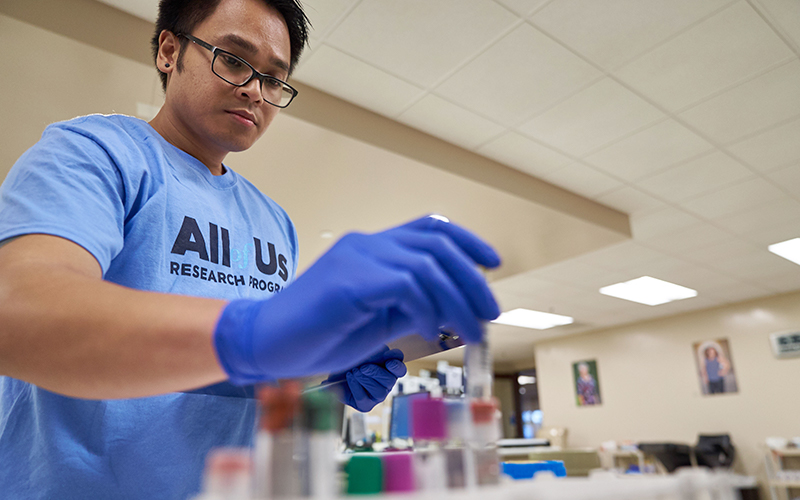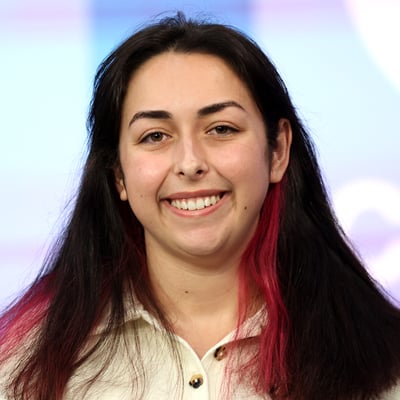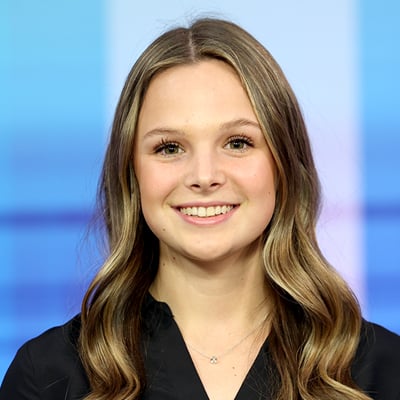
More than 50,000 people in Arizona are part of All of Us, a National Institutes of Health initiative to build the largest and most diverse medical database of its kind. (Photo courtesy of the National Institutes of Health)
PHOENIX – Important medical research often draws from a limited pool of participants and overlooks many others – especially people of different racial and ethnic backgrounds.
Looking to change that, Arizona researchers are taking part in the All of Us program – an effort by the National Institutes of Health to collect data from at least 1 million people of different races, ages and backgrounds who live in all parts of the country.
Arizona recently enrolled its 50,000th participant among more than 484,000 across the U.S. National enrollment, which launched in 2018, is expected to continue for at least a decade.
Cronkite News spoke with All of Us leaders and a participant to learn more about the initiative that will help researchers find more cures for a multitude of conditions.
What sets All of Us apart from other health research efforts?
Dr. Eric Reiman, CEO of Banner Research and principal investigator for All of Us research in Arizona, said the difference with this program is “we will have an unprecedented number of people” from underrepresented groups to help understand how treatments can be applied more broadly and not just to one sector of the population.
“The biggest challenge we have in health care research is extending findings that we generate in clinical and other studies to underrepresented groups – underrepresented racial and ethnic groups, individuals with lower income levels and educational levels, individuals from rural communities that are not close to clinical trial sites,” Reiman said.
The U.S. Food and Drug Administration’s Office of Minority Health and Health Equity is among agencies working to advance equity in health research, which has lagged because of a lack of efforts on the part of researchers but also skepticism about participating among people of color.
The COVID-19 pandemic further highlighted the importance of diverse representation in research. Cases and deaths have disproportionately affected people of color, yet they were deeply underrepresented in clinical trials for vaccines.
In medical research, “Most of the genetic information we have is on individuals of European ancestry,” said Dr. Jason Karnes, director of scientific programs for All of Us in Arizona. “By including more diverse populations, we increase the amount of genetic diversity that’s within the data set.”
How does the program work?
Those interested can enroll online, and health insurance isn’t necessary. Participants agree to share electronic health records and/or respond to some health surveys. Others may be asked to visit a partner center to have measurements taken and to provide blood and urine samples. DNA results that include some genetic traits and other health-related information may be provided to those who enroll.
Karnes and Reiman are participants in the research. They have provided blood, urine and other DNA samples to the database in hopes of furthering the process they’re helping to oversee.
Victor Avila was the 50,000th person to enroll in Arizona.
Avila, 34, is director of development at Aunt Rita’s Foundation in Phoenix, which advocates for an end to HIV and provides free testing and other services. He is Hispanic and HIV positive himself, and said he wanted to take part in All of Us because of the diversity he brings to the table and the potential for advances in HIV treatment.
“I read through the different studies that they’re doing and how their research is working to understand … the LGBTQ+ population and those affected with HIV as they continue to age,” Avila said. “I just felt an obligation, personally, to be part of the study so that I can help make some kind of a difference. And maybe when I get to that aging part, there’s going to be better medicine, more advanced health care, and just an opportunity for me to lead a better overall healthy life.”
Avila has provided his medical history and lab samples to the program, and he’s awaiting results to learn about any diseases or conditions he may be predisposed to.
“Once I understand and I learn what I may be predisposed to, I’m going to have questions so that when I go see my physician, I can let them know, ‘Hey, this is what came up in my chart. What do you recommend that I do or steps to follow?’” Avila said.
“It’s going to give me a tool … so that I can take control of my health.”
How will the health data be used?
The goal is to help researchers across the globe study any number of different health issues, instead of a single condition. Researchers can register with the program to access collected information.
In Arizona, for example, more than 40 researchers are examining subjects including the consequences of Valley fever to predictors of endometriosis.
“We are a big believer in the idea of using shared resources in a collaborative model to help the research community do things together,” Reiman said.
How is a participant’s personal information protected?
The program has a series of guidelines to help protect the privacy of those participating. Names and other identifying information are removed from the data.
“From a genetic standpoint and electronic health records standpoint, that information will be in the data set, but in a de-identified way,” Karnes said. “So your names, your addresses, any information that could potentially identify you is completely eliminated from this resource.
“It’s protected by a certificate of confidentiality, which means even if a subpoena is issued, the information is protected. The privacy of our participants is highly protected and highly regarded.”


